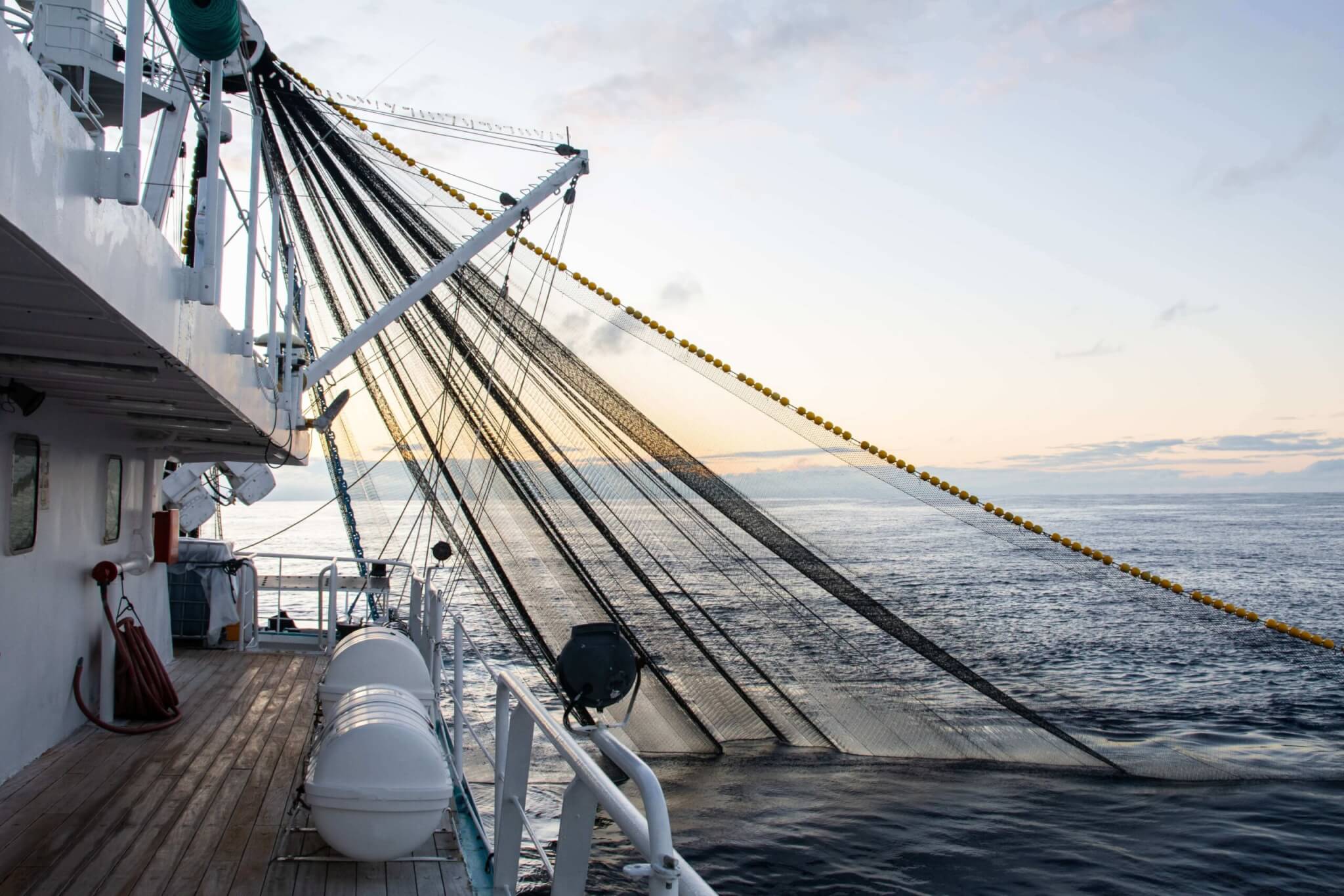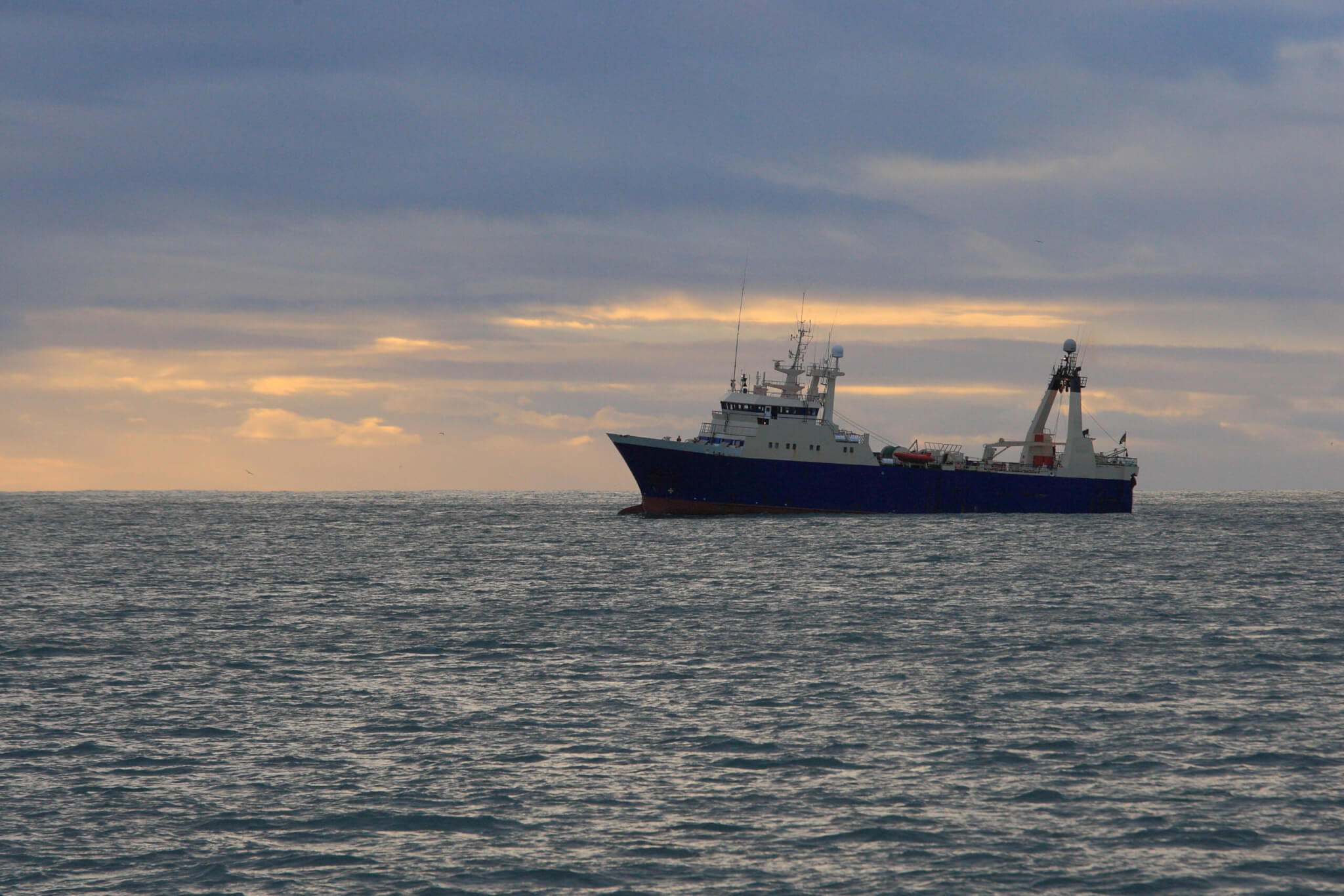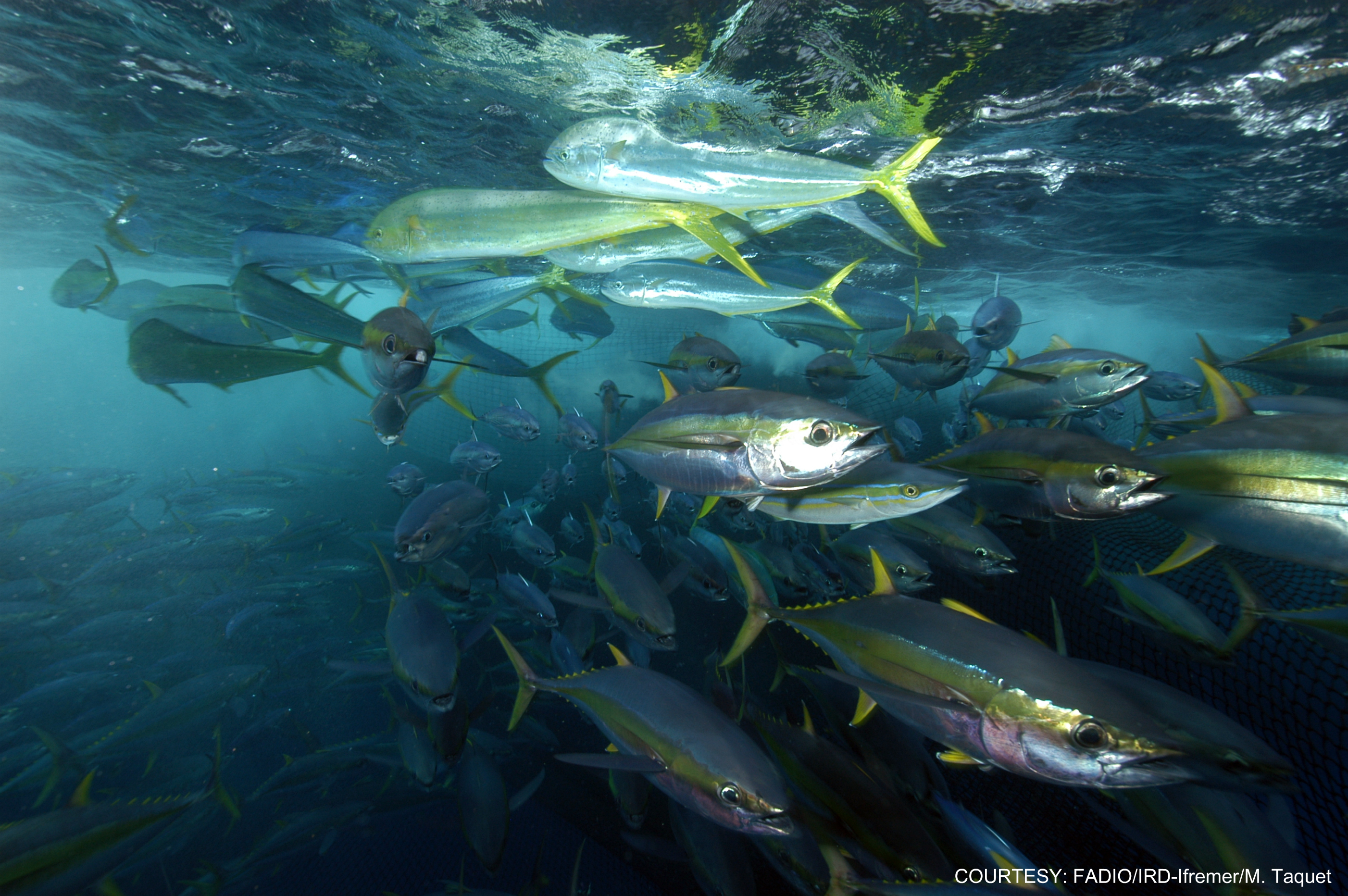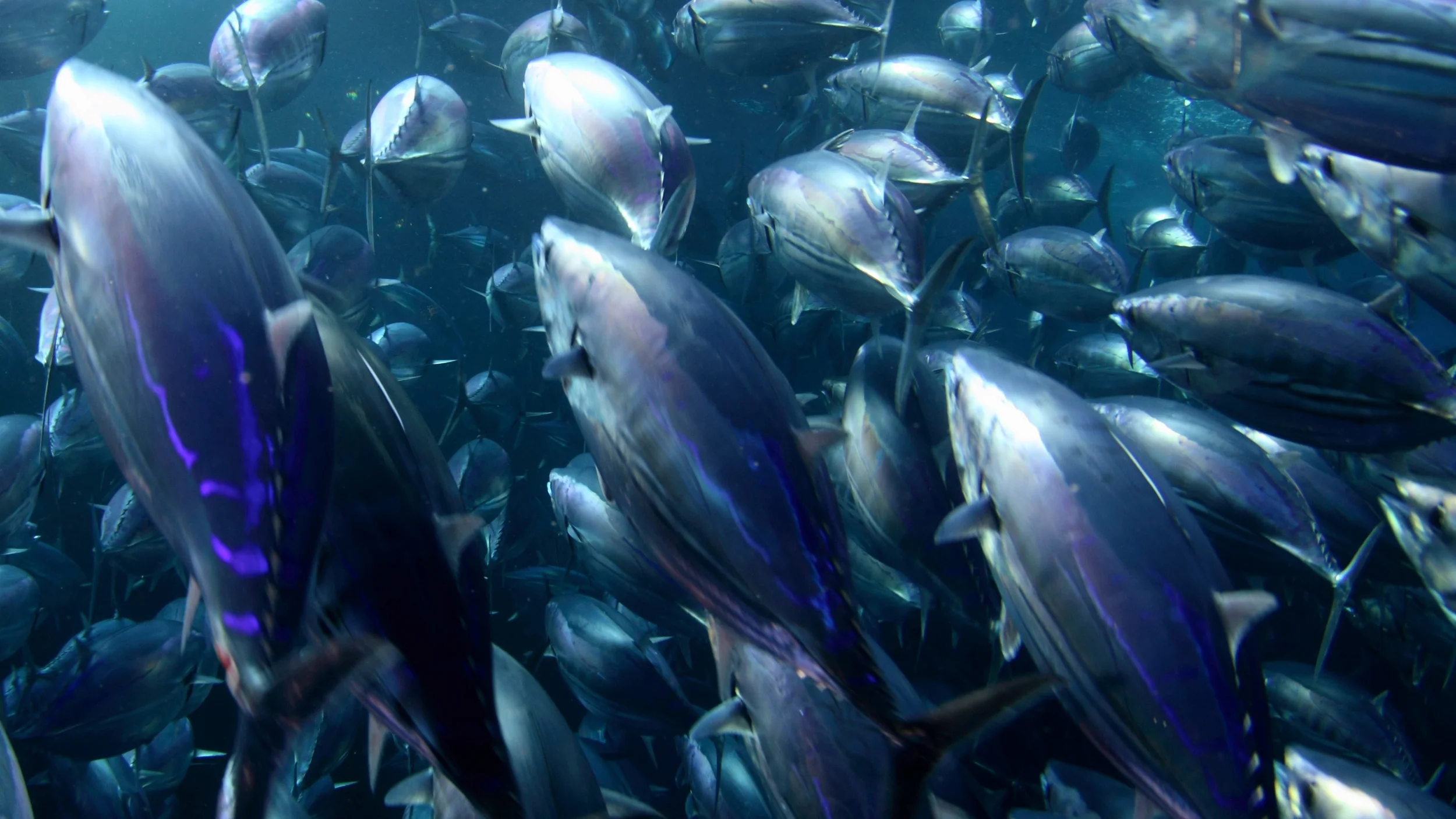
Building on Progress: ISSF Priorities for ICCAT 2025
As the International Commission for the Conservation of Atlantic Tunas (ICCAT) convenes its annual meeting from November 17-24, 2025, the International Seafood Sustainability Foundation (ISSF) is encouraged by the Commission’s ongoing momentum toward stronger, science-based management.
At this year’s meeting, ISSF urges ICCAT Parties to build on that progress by focusing on three critical and complementary priorities: finalizing harvest strategies for key stocks, scaling up electronic monitoring (EM) and human observer coverage, and advancing bycatch mitigation and shark conservation.
Together, these actions can accelerate ICCAT’s transition to fully monitored and evidence-driven fisheries management.
Completing the Transition to Harvest Strategies
ICCAT has become a leader among tuna RFMOs in adopting harvest strategies, also known as management procedures (MPs), which are frameworks that use pre-agreed rules to adjust fishing opportunities based on stock status indicators. MPs replace short-term negotiations with predictable, transparent, and precautionary decision-making.
Following the successful adoption of MPs for northern albacore, Atlantic bluefin tuna, and north Atlantic swordfish, ICCAT scientists and managers have developed candidate MPs for western Atlantic skipjack that are ready for adoption. ICCAT must now adopt this MP in 2025.
ISSF also urges ICCAT to accelerate progress on multi-stock harvest strategies for bigeye, yellowfin, and eastern skipjack, as well as for southern Atlantic albacore. Several Marine Stewardship Council (MSC)-certified fisheries that catch southern Atlantic albacore have deadlines to implement MPs by 2028–2029. By acting decisively, ICCAT can help fleets close MSC conditions and demonstrate leadership in adopting tools to ensure precautionary decision-making.
Scaling Up Electronic Monitoring and Observer Coverage
Independent data collection is the cornerstone of sustainable tuna fisheries. Comprehensive observer coverage — through human observers, electronic monitoring, or a combination of both — ensures that catch and effort data are accurate and that compliance with ICCAT measures can be verified.
In 2023, ICCAT took a major step by adopting minimum standards for electronic monitoring programs across purse-seine and longline fleets. The challenge now is implementation. At present, ICCAT requires only 10 percent observer coverage for longline vessels targeting tropical tunas — a level too low to produce reliable target catch and bycatch estimates. ISSF is therefore calling for ICCAT to increase observer coverage to at least 20 percent, as recommended in the past by ICCAT scientists, as an interim goal and to establish a clear timeline to reach 100 percent coverage in industrial tuna fisheries, including during at-sea transshipments.
EM technologies make that goal attainable. Cameras and sensors can continuously record fishing activity, complementing human observers and greatly expanding the scale of monitoring.
ISSF’s own research and advocacy — from pilot EM trials on tropical tuna vessels to collaborative workshops with RFMOs and companies — have helped demonstrate EM’s feasibility. By enabling electronic monitoring to count toward ICCAT’s current observer requirements, the Commission can improve data quality, incentivize implementation of EM, and ensure fleets are meeting the current minimum observer coverage levels — a win-win for science-based management.
Strengthening Shark Protections and Bycatch Mitigation Through Better Monitoring
Electronic monitoring and bycatch mitigation are closely linked: effective bycatch management depends on monitoring and accurate, verifiable data. Without adequate observer coverage, managers cannot accurately estimate bycatch or enforce the use of required mitigation measures or retention prohibitions — a gap that hinders conservation outcomes for sharks, seabirds, and sea turtles.
Shark conservation is a particularly urgent priority this year. Both North and South Atlantic shortfin mako populations remain overfished and subject to overfishing, according to the 2025 SCRS report. For the northern stock, any catch retention impedes recovery; for the southern stock, total removals must remain below 1,295 tonnes to stay within the scientific advice. ISSF supports a full retention ban for the North Atlantic and catch limits for the South Atlantic that account for all sources of mortality, including dead discards and post-release losses.
At the same time, ICCAT should modernize its finning regulation by requiring sharks to be landed with fins naturally attached with no exceptions. This rule improves enforcement and data accuracy while helping to curb illegal finning.
Updating ICCAT’s seabird bycatch measure is also essential. The current rule predates the latest science and does not align with standards under the Agreement on the Conservation of Albatrosses and Petrels (ACAP). The Commission must update its seabird measure to ensure required seabird mitigation techniques reflect the best available science.
By embracing EM and increasing observer coverage requirements, ICCAT can close the monitoring and information gaps that undermine bycatch management. The technology now exists to collect needed data and identify and address compliance issues swiftly — from unreported shark discards to non-use of required mitigation gear — and to ensure that these conservation measures deliver real results for threatened species.
Looking Ahead
Over the past several years, ICCAT has been making measurable progress that we applaud. It has advanced new harvest strategies, improved tropical tuna management, and adopted standards for electronic monitoring — concrete steps that move Atlantic tuna fisheries closer to long-term sustainability. But sustaining these gains and ensuring similar outcomes for other tuna and non-target species requires better data, increased monitoring, modern management tools, and consistent accountability.
ISSF remains ready to assist. Through collaborative research, vessel transparency initiatives, and best-practice guidance, ISSF is committed to help ICCAT members and stakeholders translate science into action and take the needed next steps toward comprehensive monitoring, complete adoption of harvest strategies, and stronger protections for vulnerable species.


